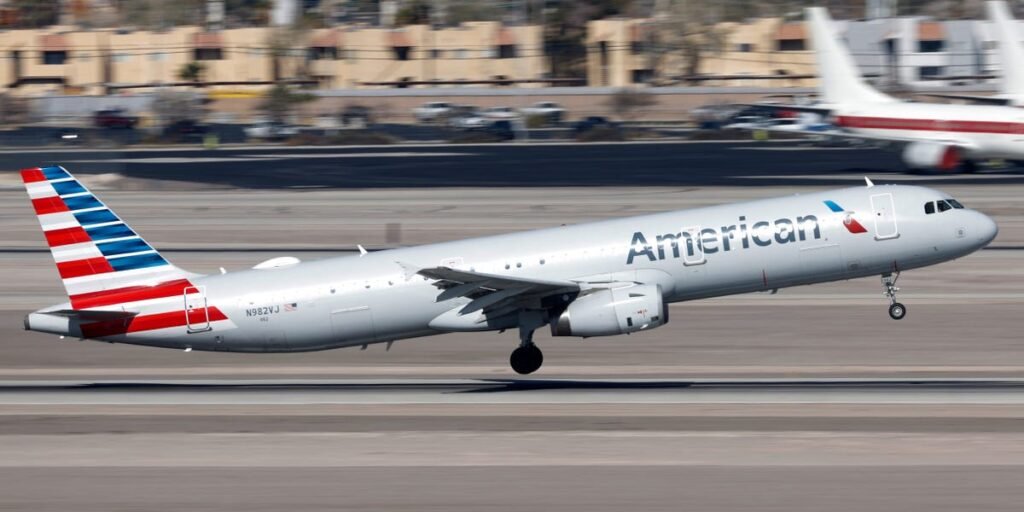American Airlines has become the latest airline to announce free in-flight WiFi.
The airline announced on Tuesday that members of its loyalty program will be able to access high-speed internet sponsored by AT&T.
There’s still a wait until next January before the launch, but American says it will have free WiFi available on more planes than any other domestic airline.
It said the service will be available on roughly 90% of its fleet, which numbers nearly 1,000 planes. By the end of 2025, it hopes to equip over 500 regional aircraft with high-speed connectivity from Viasat and Intelsat, ready to roll out in January.
American is the last of the traditional “Big Three” airlines to announce complimentary WiFi.
However, Delta Air Lines only offers it free for loyalty members on most of its domestic flights, requiring payment on long-haul twin-aisle planes.
United Airlines last September announced a deal with Elon Musk’s Starlink to roll out free WiFi. It said it would take several years to equip its more than 1,000 planes with the service. United is set to fly its first regional aircraft with Starlink next month and hopes its first mainline plane will be ready before the end of the year.
JetBlue has offered free WiFi for over a decade, while Hawaiian Airlines was the first US carrier to install Starlink.
Musk’s satellite service appears to have pushed more airlines to consider the value of offering free, high-speed WiFi.
“While we believe that American Airlines has been generally pleased with Viasat’s execution, the satellite provider likely faced significant competition from SpaceX’s Starlink,” William Blair analyst Louie DiPalma wrote in a Tuesday note.
Business Insider tried it out on Qatar Airways’ Starlink launch flight last October and saw speeds of up to 215 megabits per second, faster than most home internet.
Starlink uses a constellation of low-Earth-orbit satellites, which provide widescale coverage and, since they’re relatively close to Earth, better connectivity.
Viasat and Intelsat, instead, have geostationary satellites, which are much higher above Earth and cover certain areas. However, the former is building up its own constellation of these with a higher capacity, and Intelsat has partnered with OneWeb — a competitor to Starlink.
Last February, Intelsat used a test aircraft connected to OneWeb to attain speeds of 150 megabits per second while flying from Anchorage, Alaska, into the Arctic Circle.
OneWeb’s operator, Eutelsat, a French company, saw its stock price soar over 500% last month over fears that Ukraine could face disruptions to its Starlink access given the US’s testing relationship with the country.
After paring those gains, Eutelsat stock is up 68% since the start of the year.
Read the full article here

















